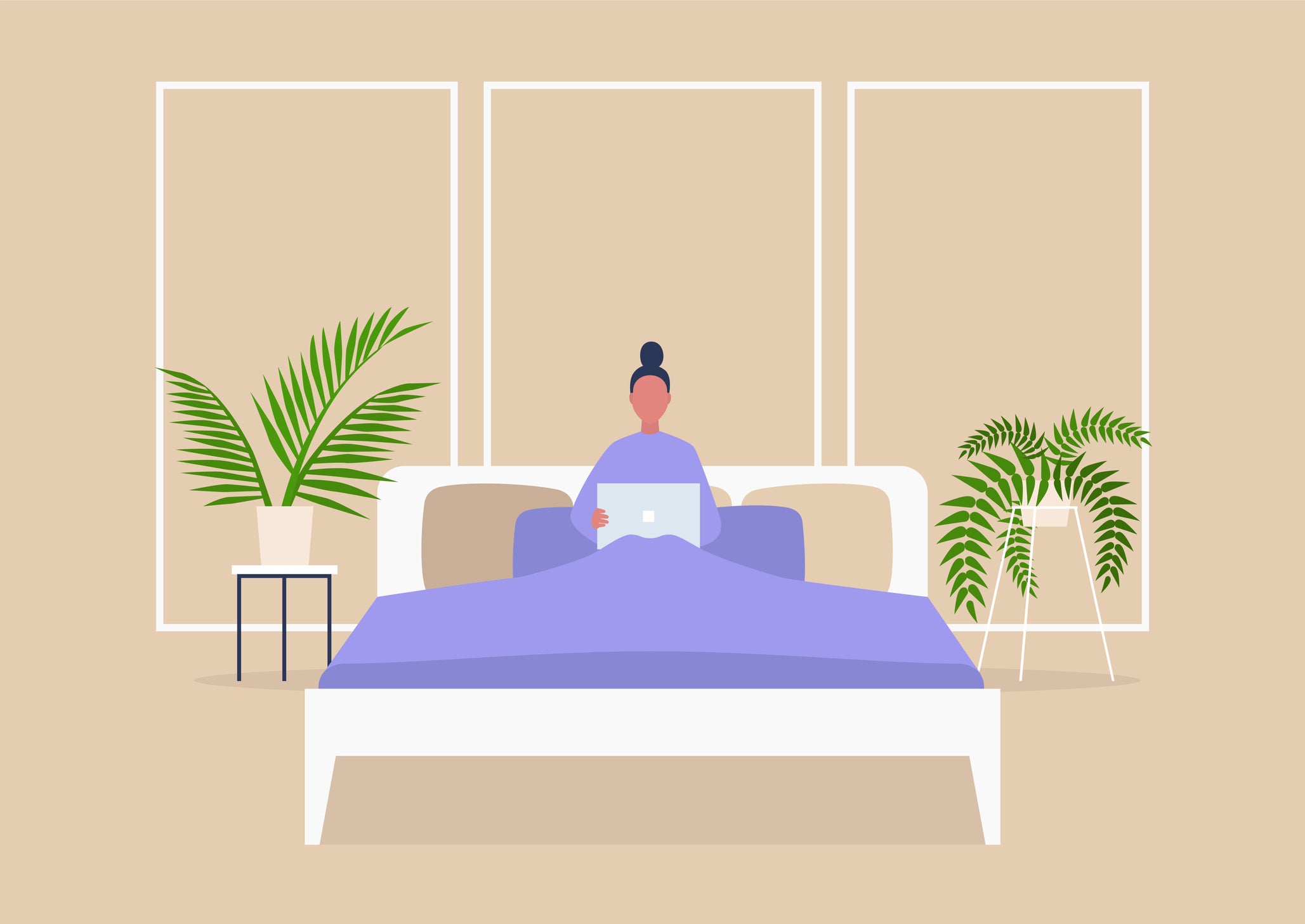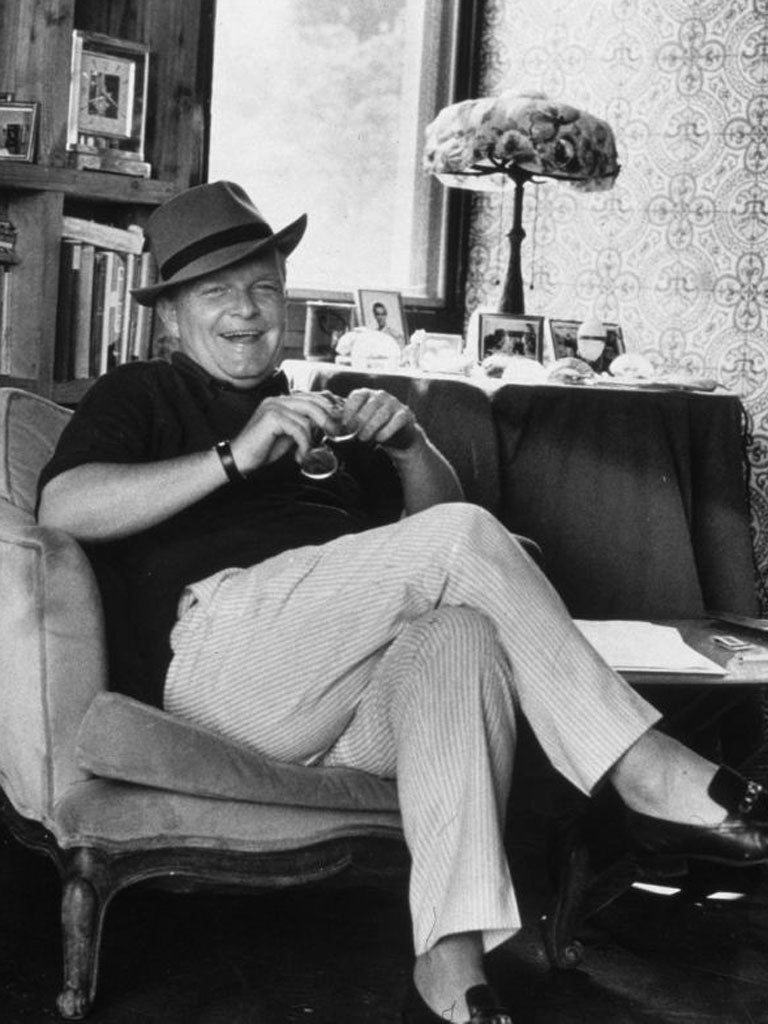‘I can’t think unless I’m lying down’: Working from bed, the revelation of 2020?
Some of the great thinkers worked from bed, so if it worked for them, why can’t it work for us too? Taylor Lorenz writes

For years, sleep experts have held one piece of common wisdom above all else: that devices have no place in the bedroom.
Yet since the pandemic began in March, millions of people have defied that guidance and begun working precisely where they sleep. They are drafting legal documents, producing events, holding client calls, coding, emailing, studying and writing, all from under the covers.
This wasn’t always the plan. Early on, many of them invested in desks and other equipment meant to make their homes as ergonomically sound and office-like as possible.
When New York City shut down in March, Vanessa Anderson, 24, set up a small desk for herself in her living room. She was working for an agency that manages private chefs and wanted to keep some semblance of separation between work and sleep. “For a while I was really committed to not working from my bedroom at all,” she says.
In May, Anderson moved her desk into her bedroom for more light. “My bed was just sitting there, taunting me,” she says. She set ground rules for herself: she’d only get in bed after 2pm, but that start time shifted earlier and earlier. Come July, her bed had become her full-time office.
Anderson has since switched jobs – she works in e-commerce for a spice shop now – and only works remotely part of the week, but still from bed. Talking to others, she’s discovered how commonplace the practice is. “I’ve been on calls with people where we were both in bed,” she says. At the end of the call it’s like, ‘How’s the pandemic going? Oh, you’re in bed right now, too? So am I!’”
Working from bed is a time-honoured tradition upheld by some of history’s most accomplished figures. Frida Kahlo painted masterpieces from her canopy bed. Winston Churchill, a notorious late riser even during the Second World War, dictated to typists while breakfasting in bed. Edith Wharton, William Wordsworth and Marcel Proust drafted prose and verse from their beds. “I am a completely horizontal author,” Truman Capote told The Paris Review in 1957. “I can’t think unless I’m lying down.”
Along with fuelling creative thinking, the bedroom can be a refuge from the chaos of home life. Parents retreat there to hide from their homebound children. Others are fleeing roommates.
“I think one of the things we’re learning is that we’re all in tight places, figuratively and literally, especially if you have a roommate or spouse, there just isn’t enough real estate in your home to have the privacy to get your work done,” says Sam Stephens, 35, a singer and songwriter.
Working from bed may also be symptomatic of collective malaise. “I spend way more time working from bed even though I have a computer, office chair and desk,” says Abelina Rios, 26, a YouTuber. “I think everybody is feeling depressed from the pandemic, and when you’re depressed one of the harder things to do is to get out of bed.”
Plenty of people, though, are unabashed about their choice to stay in bed all day. Poulomi Banerjee, 26, a fundraiser, says that she’s worked this way since school. “I was unable to focus unless I was super comfortable,” she says.

Daniel Peters, 45, a marketer, specifically works on his wife’s side of the bed during the day (because sleep hygiene?) He posits that working from bed could be an expression of denial. “I wonder if we almost subconsciously don’t accept this is real life,” he says. “Does sitting at a table or desk make it feel more like real life? We all felt like this pandemic would only take so long and it’s still going on. If I sit at my desk all day, does that mean this is how it is going to be full time?”
Liz Fosslien, 33, an author of No Hard Feelings, a book about how emotions affect work, brings her computer into bed with her every morning, wireless mouse and all. “I use my mattress as a mouse pad,” she says. Her advice to anyone doing the same these days: “Don’t beat yourself up for it. It is easy to be like, ‘Ugh I’m in my pyjamas, I haven’t washed my hair, what am I doing,’ but it’s really about the quality of your output.”
A primary argument against using devices in bed is that it can further erode the boundaries between work and home, and disrupt your sleep cycle. But even Arianna Huffington, the media executive turned sleep evangelist, has found herself working from bed since the pandemic hit.
When we’re horizontal, whether it’s sleeping or dreaming, is when we’re doing a lot of subconscious or unconscious creative work
“I think it can work great for people, but it’s critical to have certain boundaries,” she says. Huffington suggests keeping your night stand clear of clutter and ensuring that you have a hard stop on work hours where you get out of bed and store your electronics in another room.
“I highly recommend a real transition,” she says. “I have a hot shower and bath to wash away the day, change what you’re wearing, have a different T-shirt for sleep. I love beautiful lingerie. It makes you feel like, ‘Hey, you’re going to sleep.’”
Proponents of desk culture have argued that there’s no way someone can be productive from bed. “I don’t know anyone who works actually in a prone position, but I know tons of people who work in bed (my husband, for instance). I think they’re all a bunch of lazy, bedsore-prone, rapidly deteriorating slobs,” writer Susan Orlean told The New Republic in 2013. “Or maybe they’re much, much happier (and smarter) than the rest of us.”
But what many homebound workers are realising during the pandemic is something chronically ill and disabled people have known for years, that working from bed doesn’t mean you’re lazy or depressed. In fact, it’s perfectly possible to hold down a job remotely from bed, provided your employer is flexible about remote work.
“We have data showing time crafting is good for happiness, if you’re able to work from anywhere and you choose to work from bed this is one example of time crafting,” says Ashley Whillans, an assistant professor at Harvard Business School. “Picking where to work and how to get work done can improve employee satisfaction.”
Tessa Miller, 32, the author of the book What Doesn’t Kill You, about her struggles with chronic illness, has been working from bed since she was diagnosed with Crohn’s disease at 23. “I think that the pandemic is highlighting all these things that chronically ill and disabled people have been doing for a long time, and now everyone is doing them as well and working from bed is one of them,” she says. “I know a lot of highly productive, intelligent, talented people who have to work from bed as a necessity.”
Those with chronic illness or disabilities say that they hope that, much as the way the pandemic has made companies more open to remote work, the stigma around working from bed will also be broken. “I hope one of the things that come out of this is it reveals you can still do good work from your bed, or bathtub, or living room sofa with a heating pad and I hope that will create opportunities for people who are chronically ill or disabled in fields they maybe didn’t feel welcome in before,” Miller says.
Amy Patel, 34, a product manager for a life sciences software company, was forced to work from bed in the early months of the pandemic when she was placed on bed rest during her pregnancy with twins. She did not love it. However, proper gear helped. “My husband bought me a really nice desk that you could put your laptop with a mouse on,” she says. “I did everything on there.”
If you want to replicate the feeling of working in bed without actually being in bed, you could purchase an Ergoquest Zero Gravity Workstation for £6,000 or buy one of the many, much cheaper computer mounts made for reclining in bed. Supportive pillows are also key for avoiding back pain. Having a spill-proof cup or a mug with a lid helps too, as some have learned the hard way.
While some people turn on computerised backgrounds to avoid revealing their bedroom workstations on video calls, others have embraced their cozy surroundings. Stephens said that she’s decorated the wall behind her bed with children’s artwork to make a more engaging background for her Instagram Live performances.
Abie Sidell, 27, a filmmaker in New York, often works from bed because of his chronic illness, but he has found it helpful even when he’s not having a flare-up. “I think that being horizontal is conducive to creative thinking,” he says. “When we’re horizontal, whether it’s sleeping or dreaming, is when we’re doing a lot of subconscious or unconscious creative work.”
If Sidell is stuck on a project or needs to think, he’ll go lie down. “Being in bed is great,” he says. “I wish, in general, there were fewer norms and standards around where it is and isn’t acceptable to work.”
If this year doesn’t shatter them, what will?
© The New York Times
Join our commenting forum
Join thought-provoking conversations, follow other Independent readers and see their replies
Comments



Bookmark popover
Removed from bookmarks